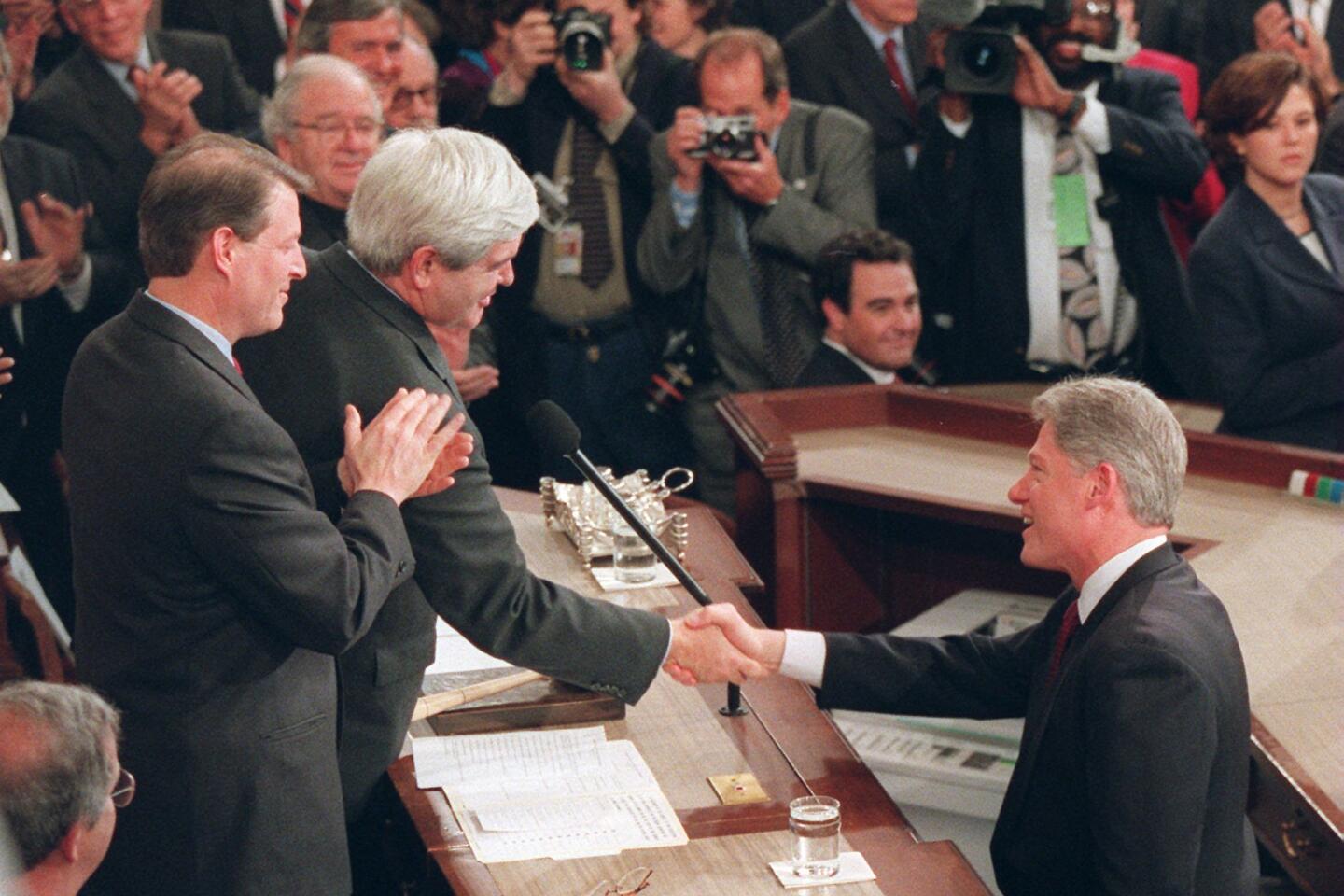Compromise farm bill on verge of clearing Congress
- Share via
WASHINGTON — Key lawmakers from both parties announced a final agreement Monday for a multi-year farm bill, putting Congress on the verge of clearing another long-stalled priority from its to-do list.
The proposed compromise, which could come up for a House vote Wednesday, would avert deep cuts sought by Republicans in the federal food stamp program and end direct payments to farmers — a controversial provision under the previous farm bill in which farmers received federal subsidies regardless of their output.
If approved, the bipartisan legislation would extend a somewhat surprising streak of cooperation in Congress, following a two-year budget deal reached in December and a $1-trillion appropriation package passed this month.
Passage in the House is not assured, although the lower-than-expected cuts to the food stamp program were likely to bring more Democratic support. Senate action would follow in the coming weeks.
The final measure would mitigate much of the House-sought cuts to the food stamp program, also known as the Supplemental Nutrition Assistance Program, by reducing funding by $8 billion over 10 years, far less than the $39 billion once sought by Republicans.
Reliance on food stamps has surged since the Great Recession. Nearly 48 million Americans are enrolled in the program, up 47% compared with 2008. Total yearly costs have jumped to nearly $80 billion from about $38 billion.
The bill’s overall price tag was expected to come in below spending levels authorized under the previous law, though a final estimate had not yet been released. The legislation also would prevent a significant jump in milk prices that will occur if no deal is reached.
Congress’ inability to pass a farm bill was another consequence of the partisan warfare that erupted between the House and Senate after Republicans regained control of the lower chamber in 2011. The traditional alliance of lawmakers from urban and rural districts -- one faction strongly supportive of nutrition assistance programs and the other of subsidies that boost farming interests -- had served to give the legislation significant bipartisan backing when it is reauthorized every five years. The last farm bill passed in 2008, and its provisions were extended an additional year as part of a January 2013 budget deal.
“We never lost sight of the goal,” said Rep. Frank Lucas (R-Okla.), chair of the House Agriculture Committee. “We never wavered in our commitment to enacting a five-year, comprehensive farm bill.”
House Majority Leader Eric Cantor (R-Va.) said in a statement that he supported the proposal but criticized Senate Democrats for their “unwillingness to challenge the status quo” by adopting Republican-sought cuts to the food stamp and other programs.
Sen. Debbie Stabenow, (D-Mich.), chairwoman of the Senate Agriculture Committee, said the compromise “proves that by working across party lines we can reform programs to save taxpayer money while strengthening efforts to grow our economy.… It’s time for Congress to finish this farm bill and give the 16 million Americans working in agriculture the certainty they need and deserve.”
ALSO:
Quiz: Test your State of the Union knowledge
Investigative committee reissues subpoenas in N.J. bridge case
Gallup poll: Obama unpopular in states with key 2014 Senate contests
More to Read
Sign up for Essential California
The most important California stories and recommendations in your inbox every morning.
You may occasionally receive promotional content from the Los Angeles Times.



















